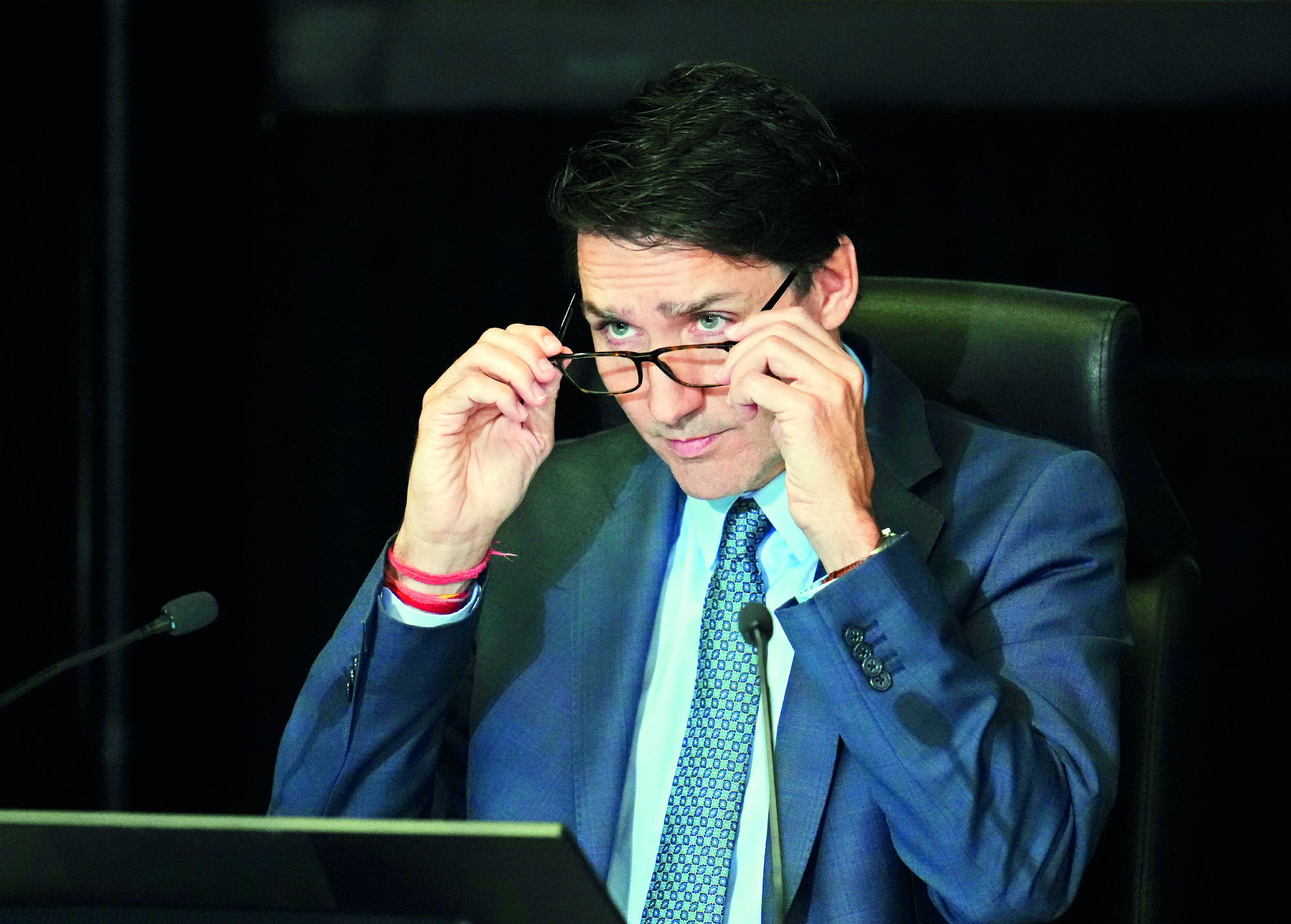Canadian PM admits he had no proof when he alleged Indian agents’ involvement

Ottawa: Prime Minister Justin Trudeau on Wednesday acknowledged that he had only intelligence and no “hard evidentiary proof” when he alleged the involvement of Indian government agents in the killing of Khalistani separatist Hardeep Singh Nijjar last year.
Testifying before the public inquiry into foreign interference in federal electoral processes and democratic institutions, Trudeau claimed the Indian diplomats were collecting information on Canadians who are in disagreement with the Narendra Modi government and passing it to the highest levels within the Indian government and criminal organisations like the Lawrence Bishnoi gang.
“I was briefed on the fact that there was intelligence from Canada, and possibly from Five Eyes allies that made it fairly clear, incredibly clear, that India was involved in this... Agents of the government of India were involved in the killing of a Canadian on Canadian soil,” he said.
He added that it was something that his government had to take extremely seriously.
‘Five Eyes’ network is an intelligence alliance consisting of the US, the UK, Australia, Canada and New Zealand. It is both surveillance-based and signals intelligence (SIGINT).
“India had indeed done it, and we had reasons to believe that they had,” Trudeau said, adding that his government’s immediate approach was to engage with the government of India to work on this together to make sure that there was accountability.
Recalling the G20 summit hosted by India in September last year, he said it was a big moment for India, and Canada “had the
opportunity of making it a very uncomfortable summit” for India if it went public with these allegations.
“We chose not to. We chose to continue to work behind the scenes to try and get India to cooperate with us,” he said.
Trudeau said the Indian side asked for evidence “and our response was, well, it’s within your security agencies.”
But the Indian side insisted on the evidence. “And at that point, it was primarily intelligence, not hard evidentiary proof. So we said, well, let’s work together and look into your security services and maybe we can get that done,” he said.
He said he met Prime Minister Modi after the end of the G20 summit in Delhi and shared that “we knew that they were involved and expressed a real concern around it. He responded with the usual response from him,
which is that we have people who are outspoken against the Indian government living in Canada that he would like to see arrested.”



